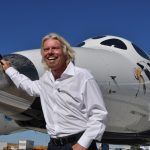Aktoty Shurtabayeva, an experienced leader in the hospitality industry, shares her vision of the digital transformation of the industry. Starting her career as a front desk agent at Renaissance Atyrau and working her way up to Head of Sales, Aktoty played a key role in launching iconic hotels in Kazakhstan, such as Astana Marriott (the first Marriott brand hotel), Hilton Astana (the first Hilton hotel), and Sheraton Astana (the first premium Sheraton brand hotel). In the interview, she talks about her experience implementing digital solutions in these projects, from mobile apps for guests to advanced data analytics, and how these innovations have helped increase guest loyalty and boost sales. The interview provides valuable practical advice and inspiring ideas for anyone interested in current trends in the hospitality industry.
— Aktoty, you are not just an observer, but a direct participant in the digital transformation of the hospitality industry. How do you, with your extensive experience working in such iconic international chains as Marriott and Hilton, assess the role of this transformation in changing the entire industry?
Thank you! I can confidently say that digital transformation is a real revolution in the hospitality industry. My experience at Marriott and Hilton has shown that technology can improve efficiency in absolutely every aspect of the business: from booking and communication with guests to operational efficiency and marketing strategies. It's no longer just about automating processes; it's about creating new opportunities and a completely different level of service. Essentially, this transformation gives us the tools to create a more personalized experience for each guest and optimize all processes. And that, of course, directly influenced my decisions in subsequent projects.
— You were a key figure in launching several successful projects in hotels. Could you tell us more about the implementation of digital solutions?
Yes, of course. In every hotel where I worked, the implementation of digital solutions was a priority for me. For example, when opening Hilton Astana, we focused on a mobile app for guests. Through it, you could order food, book a spa appointment, open your room door, and even make payments — all from your phone. It was a bold move for the time, but we saw how it increased guest loyalty.
Later, at Sheraton Astana, we focused on more advanced data analytics. We implemented a system that allowed us to collect information about guests' preferences in order to offer more personalized offers. This gave us the ability to not only respond to guest requests but also to anticipate them.
— Your professional experience in sales and marketing is truly impressive. What specific digital tools and strategies have you, as a leader, implemented in your work to increase guest loyalty and significantly boost sales efficiency?
My work in marketing and sales has always been results-oriented. Digital tools have become key assistants for me and my team. We actively used CRM systems to collect and analyze customer data, which allowed us to create more personalized marketing campaigns. In social media, we didn't just publish content; we built a dialogue with customers, receiving feedback and responding quickly to their requests. Email marketing also became an important tool — but we tried to make it more relevant and less intrusive. As for the direct increase in sales, we actively used online booking platforms and also developed our own sales channels, including the hotel website. An important aspect was also staff training — properly conveying to the team the principles of effective use of these tools.

— You not only coped with the difficulties caused by the pandemic but also achieved an impressive result — as far as we know, in 2023, revenue amounted to more than 4 billion tenge. How, from your professional point of view, did the COVID-19 pandemic affect the acceleration of digital transformation processes in the hospitality industry? How did you adapt to these changes?
The COVID-19 pandemic became a catalyst for digitalization in the hospitality industry. Before that point, we may have been moving in this direction, but at a slower pace. The pandemic forced us to act quickly and decisively.
Digital tools became not just desirable but necessary for survival. We switched to contactless service, actively promoted online booking, started using mobile apps to communicate with guests, and began actively developing online commerce to sell additional services.
As for the revenue in 2023, it was the result of the work of the entire team and the correct adaptation to the new market conditions. We quickly realized that we needed to focus on domestic tourism, rather than business trips as before, and introduced a special offer for the local population.
— What challenges do you think hotels face when implementing new technologies, and what strategies, based on your experience, are most effective for overcoming them?
One of the main challenges is resistance to change from staff. Not all employees are ready to quickly adapt to new technologies. Therefore, it is very important to devote time and resources to training. Another challenge is the integration of various digital solutions into a single system. Everything needs to work like clockwork, and there shouldn't be any glitches. And, of course, the financial aspect – implementing new technologies requires investment, and you need to properly assess their effectiveness.
Regarding strategies, in my opinion, it's important to start small, gradually expand the use of technology, focus on the specific needs of the hotel, and have a clear strategy. It is also necessary to regularly analyze the results and make adjustments.
— Regarding the new trends of today – how do you see the use of artificial intelligence and big data to optimize processes and create a unique, unforgettable experience for each guest?
I am convinced that artificial intelligence and big data are the key to creating a more personalized experience for guests. AI can help us automate many routine processes, freeing up staff time for more important tasks. For example, chatbots can answer guest questions at any time of day, and facial recognition systems can speed up the check-in process.
Big data also allows us to analyze guest preferences in order to make more relevant offers. We can use this data to improve service, create individual package deals, and personalize content in our marketing campaigns. This is exactly what I mean by taking customer service to a new level.
— Finally, share your vision of the future of the industry in the context of digital transformation and personalization, and what steps need to be taken today to achieve this future?
I see the future of the hospitality business as a more technologically advanced and personalized environment. Hotels will use artificial intelligence and big data to anticipate the desires of guests, offering them more relevant services and offers. Virtual reality and augmented reality can be used to create interactive experiences, and mobile apps will become an integral part of the guest experience.
To achieve this future, hotels need to invest in digital technologies today, train staff, and, most importantly, constantly adapt to the changing needs of guests. It is necessary to remember that technology is just a tool, and it is important to maintain a human approach.









